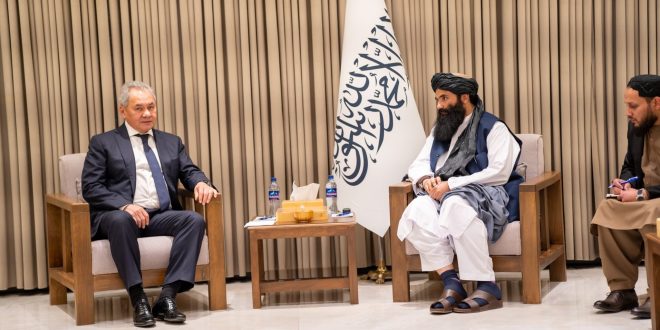KABUL – In a bold geopolitical maneuver, Russia has initiated its highest-level diplomatic engagement with Afghanistan’s Taliban regime, signaling a strategic pivot in its foreign policy amid global isolation. Sergei Shoigu, the secretary of Russia’s Security Council and a close ally of President Vladimir Putin, visited Kabul earlier this week to meet senior Taliban leaders.
Shoigu, previously Russia’s defense minister, held talks with Abdul Ghani Baradar, Afghanistan’s deputy prime minister for economic affairs, as well as Taliban defense and interior ministers. Baradar, a key architect of the Doha Agreement and co-founder of the Taliban, sought Russian support to mitigate the crippling impact of Western sanctions.
The visit underscores a potential shift in Russia’s stance, with the Kremlin reportedly considering removing the Taliban from its list of “terrorist organizations.” President Putin previously labeled the Taliban an “ally in the fight against terrorism,” signaling a desire for deeper collaboration.
Experts suggest Putin’s outreach is part of a broader strategy to strengthen alliances in Asia, countering Western censure over Russia’s invasion of Ukraine. “Afghanistan’s strategic location makes it a crucial player in balancing global powers, from the US to China,” said Dr. Oz Hassan, a national security expert.
The Taliban, facing international isolation due to its oppressive policies, is seeking legitimacy and partners like Russia, which are less likely to criticize its governance. For Russia, closer ties could yield economic benefits and even military collaboration. Analysts speculate that Moscow may leverage the Taliban’s battle-hardened fighters to bolster its campaign in Ukraine, echoing its transactional relationship with North Korea.
This developing alliance signals a recalibration of power dynamics in Asia and highlights Russia’s growing defiance of Western sanctions and political ostracism.
 Afghanistan Times
Afghanistan Times




